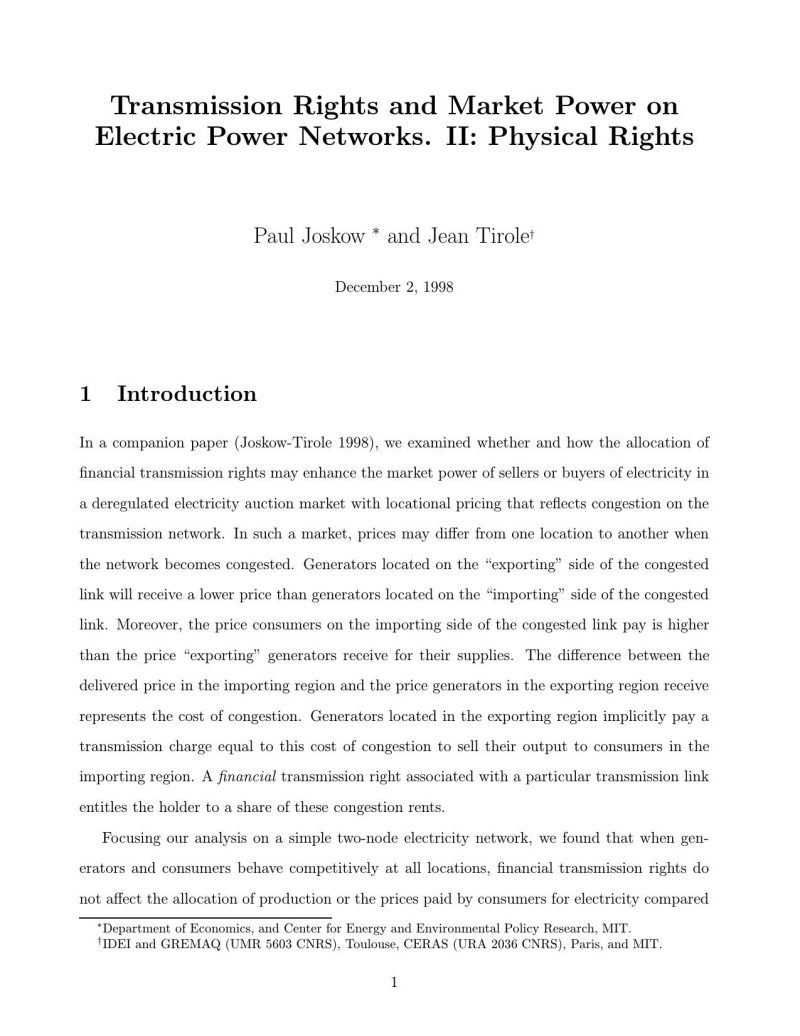Transmission Rights and Market Power on Electric Power Networks II: Physical Rights
Paul Joskow and Jean Tirole
Jan-99
In a companion paper (Joskow-Tirole 1998), we examined whether and how the allocation of financial transmission rights may enhance the market power of sellers or buyers of electricity in a deregulated electricity auction market with locational pricing that reflects congestion on thetransmission network. In such a market, prices may differ from one location to another when the network becomes congested. Generators located on the “exporting” side of the congested link will receive a lower price than generators located on the “importing” side of the congested link. Moreover, the price consumers on the importing side of the congested link pay is higher than the price “exporting” generators receive for their supplies. The difference between the delivered price in the importing region and the price generators in the exporting region receive represents the cost of congestion. Generators located in the exporting region implicitly pay a transmission charge equal to this cost of congestion to sell their output to consumers in the importing region. A financial transmission right associated with a particular transmission link entitles the holder to a share of these congestion rents.
The purpose of this paper is to extend the analysis in our companion paper to consider physical transmission rights. Under a physical transmission rights system, the capacity of each of the potentially congested interfaces is defined and rights to use this capacity are created and allocated in some way to suppliers and consumers. A supplier of electricity that uses a congested transmission link must possess a physical right to have its supplies accepted for scheduling or “transportation” by the network operator. Once an electricity supplier has such a physical right, there is no additional charge for using the associated congested transmission interface. That is, a generator located in the exporting region which has acquired the necessary physical rights would be paid a price equal to the delivered price in the importing region for any net supplies it sells to consumers located in the importing region; there is no implicit or explicit congestion charge assessed on such a generator. Of course, the generator would have to cover the cost of acquiring its rights from the gross proceeds from such electricity sales. The physical rights are fully tradable and it is the market for these rights that determines the market clearing price of congestion.



